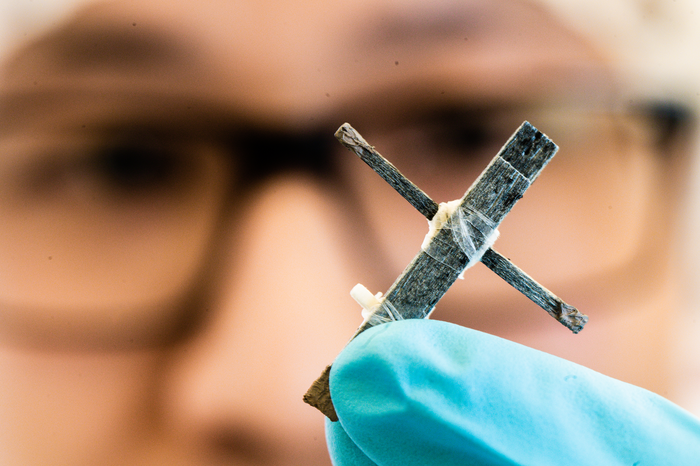From the forest to electronics, the world’s first wooden transistor might shape a new era of sustainable electronics.
A team of researchers from KTH Royal Institute of Technology and Linköping University have been working together and developing the first wooden transistor. Being published in the official journal of the National Academy of Sciences -PNAS, their study laid the first stone for more developments of electronics from wood material and the management of electronic plants.
The first transistors invented nearly a century ago are considered equally crucial to humanity as the telephone, bicycle, or the light bulb. Nowadays, they are manufactured into nanoscale particles crucial to modern electronic devices. The transistor can control the voltage flow and act as a switch for electrical signals.
The world’s first wooden transistor was successfully developed through a remarkable collaboration between researchers from KTH Royal Institute of Technology and Linköping University. Their teamwork proved to be highly effective in achieving this groundbreaking feat.
Referring to Isak Engquist, the senior associate professor at the Laboratory for Organic Electronics at Linköping University, the team has come up with a whole brand new principle about the potential of the wood transistor, despite the disadvantages of this material.
In the last trials, those transistors could only transport ions. And when the ions are depleted, the transistor stops working. Linkoping researchers, on the other hand, have developed transistors that can operate continuously without degradation and regulate the flow of electricity.
Balsa wood was used in this research due to the requirement for uniformly structured and grain-free wood. In the wood, lignin was removed, while the cellulose fibers and the channel where lignin used to be were kept still. They then filled these channels with conductive materials, such as polymer and plastic, to develop a new wood material that can conduct electricity.
The Knut and Alice Wallenberg Foundation, through the Wallenberg Wood Science Center, raised funds for this entire research project. The wooden transistor is a remarkable achievement for sustainable electronics, combining nature and technology towards a more environmentally aware future.
Article source: EurekAlert
Image credit: Thor Balkhed






